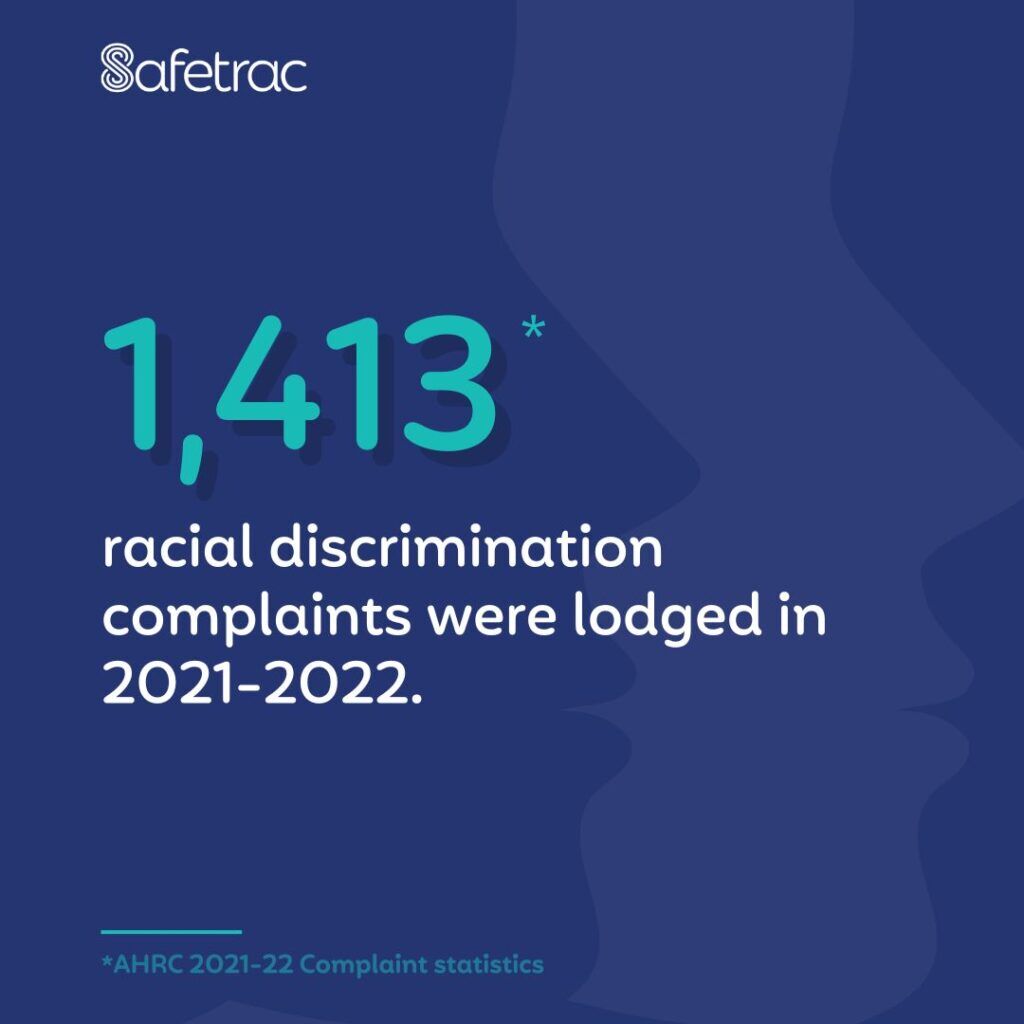Promoting equality: International Day for the Elimination of Racial Discrimination
- Updated
- 4 min
On March 21, we commemorate the International Day for the Elimination of Racial Discrimination. This year’s theme, “A Decade of Recognition,” marks a crucial milestone in an ongoing global effort to combat racism and promote equality.
As we reflect on the progress made over the past decade, we also recognise the challenges that persist not just in the society but also in Australian workplaces and organisations.
What is racial discrimination in the workplace and how does it occur?
Racial discrimination is when someone is treated unfairly or differently because of their race or ethnicity. Imagine if a person is not hired, paid less, denied a promotion, or harassed at work due to their race or ethnicity.
What racial discrimination looks like in the workplace
Racial discrimination manifests in various ways, spanning from overt actions to subtler, indirect forms. Direct instances may involve derogatory remarks, or the denial of opportunities based on race, while indirect manifestations could include being passed over for promotions or enduring everyday bigotry.
Regardless of its form, racial discrimination in the workplace fosters toxic environments that corrode morale and hinder productivity.
The impact of workplace racial discrimination on individuals
Experiencing racial discrimination in the workplace can profoundly impact an individual’s well-being and their sense of belonging within the professional community.
Such discrimination can evoke feelings of anger, frustration, and sadness, and may even result in adverse effects on mental health. It transcends mere missed opportunities; it strikes at the core of feeling valued and respected as a vital member of the team.

Source: https://humanrights.gov.au/sites/default/files/ahrc_ar_2021-2022_complaint_stats_0.pdf
What are the Anti-Discrimination Laws?
Federal anti-discrimination laws in Australia provide crucial protection against prejudice and harassment based on characteristics such as race, sex, age, disability, sexual orientation, gender identity, and intersex status, while state and territory laws further bolster these efforts, ensuring just and inclusivity.
The following federal anti-discrimination laws protect people from discrimination and harassment:
- Australian Human Rights Commission Act 1986 (Cth)
- Age Discrimination Act 2004 (Cth)
- Disability Discrimination Act 1992 (Cth)
- Racial Discrimination Act 1975 (Cth)
- Sex Discrimination Act 1984 (Cth)
- Fair Work Act 2009 (Cth)
Federal discrimination laws prohibit discrimination in different areas of public life against people on the basis of:
- Race, including colour, national or ethnic origin or immigrant status
- Sex, pregnancy, marital status, family responsibilities and breastfeeding
- Age
- Disability
- Sexual orientation, gender identity and intersex status.
State and territories also have laws against discrimination. While they share a number of similarities, state and territory laws may cover additional grounds of discrimination and can apply in slightly different ways.
Enabling workplace equality: Prioritising compliance training
It’s crucial to stay current on workplace laws, particularly those protecting against racial discrimination. This awareness benefits both employees and employers, promoting fairness. Compliance training is key, empowering individuals to identify and address discrimination.
Prioritising compliance training showcases a commitment to legal standards and creating an inclusive workplace culture.
Workplace culture
Fostering a culture of compliance is essential for creating a workplace where everyone feels respected, valued, and able to contribute their best. By prioritising compliance with policies against racial discrimination and other forms of misconduct, organisations can promote a positive work environment, build trust, enhance productivity, and mitigate risks.
Long term consequences
The unchecked persistence of racial discrimination in the workplace has profound long-term consequences. It not only fosters a toxic environment for employees but also undermines the foundation of diversity, equity, and inclusion efforts within an organisation. Additionally, it can tarnish the organisation’s reputation, making it less appealing to potential employees, clients, and investors who prioritise diversity and inclusivity.
Understanding racial discrimination in the workplace is essential for creating environments where everyone feels respected, valued, and able to succeed based on their abilities and merit, rather than their race or ethnicity. By recognising and addressing discrimination, we can work towards building more inclusive, equitable and compliant workplaces for all.
How Safetrac can help:
- Access top-quality compliance expertise without the hassle of building it in-house.
- Achieve engaging learning outcomes with content covering essential topics like Diversity and Inclusion, Discrimination in the Workplace, and more.
- Streamline compliance training and tasks for easy auditing and review.
To combat racial discrimination in workplaces and foster environments where every individual is valued and respected. We empower companies like yours to dismantle systemic biases, promote inclusivity and diversity and ensure fairness for all employees, regardless of race or ethnicity.
Get the latest news
Stay updated with the latest news and expert insights on compliance, legislation, and industry trends.
Share
Latest news & insights
- 5 min
- 5 min
